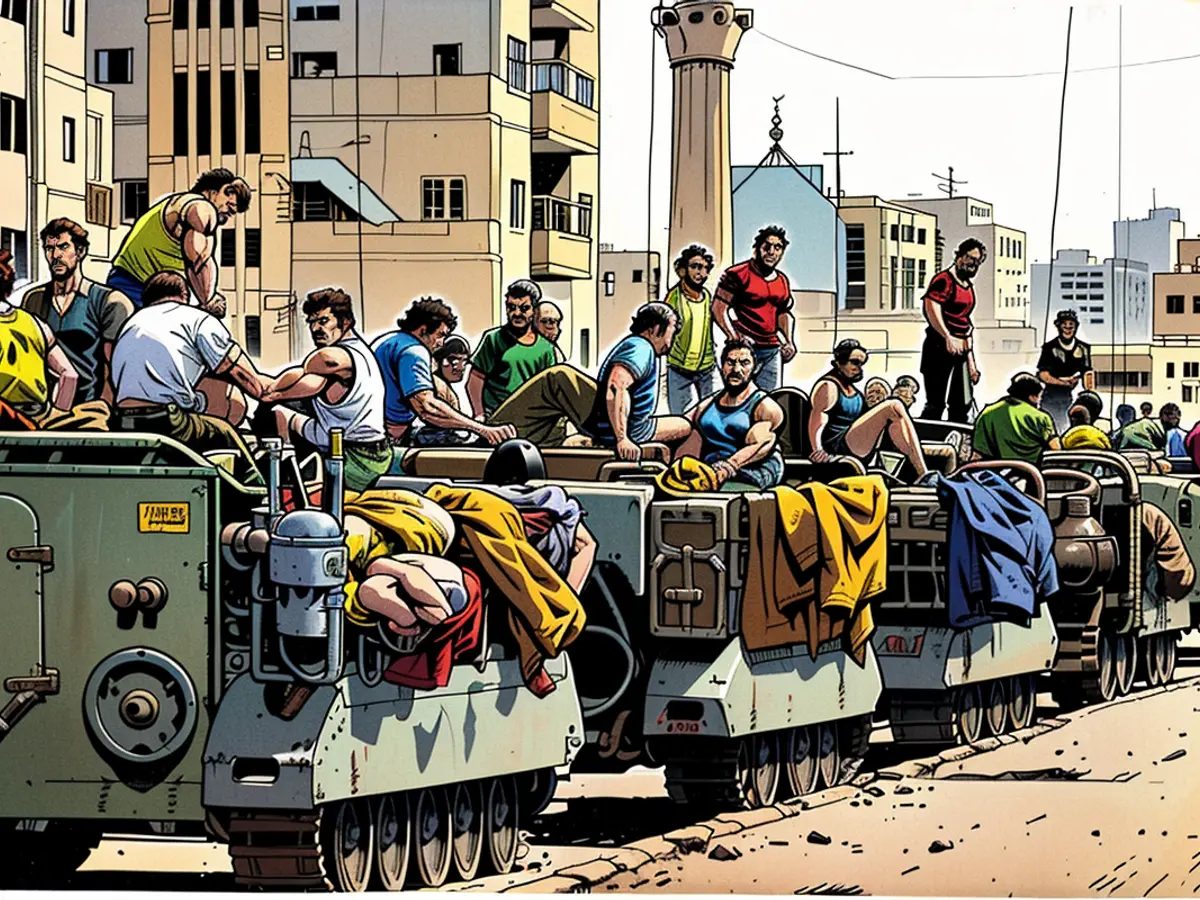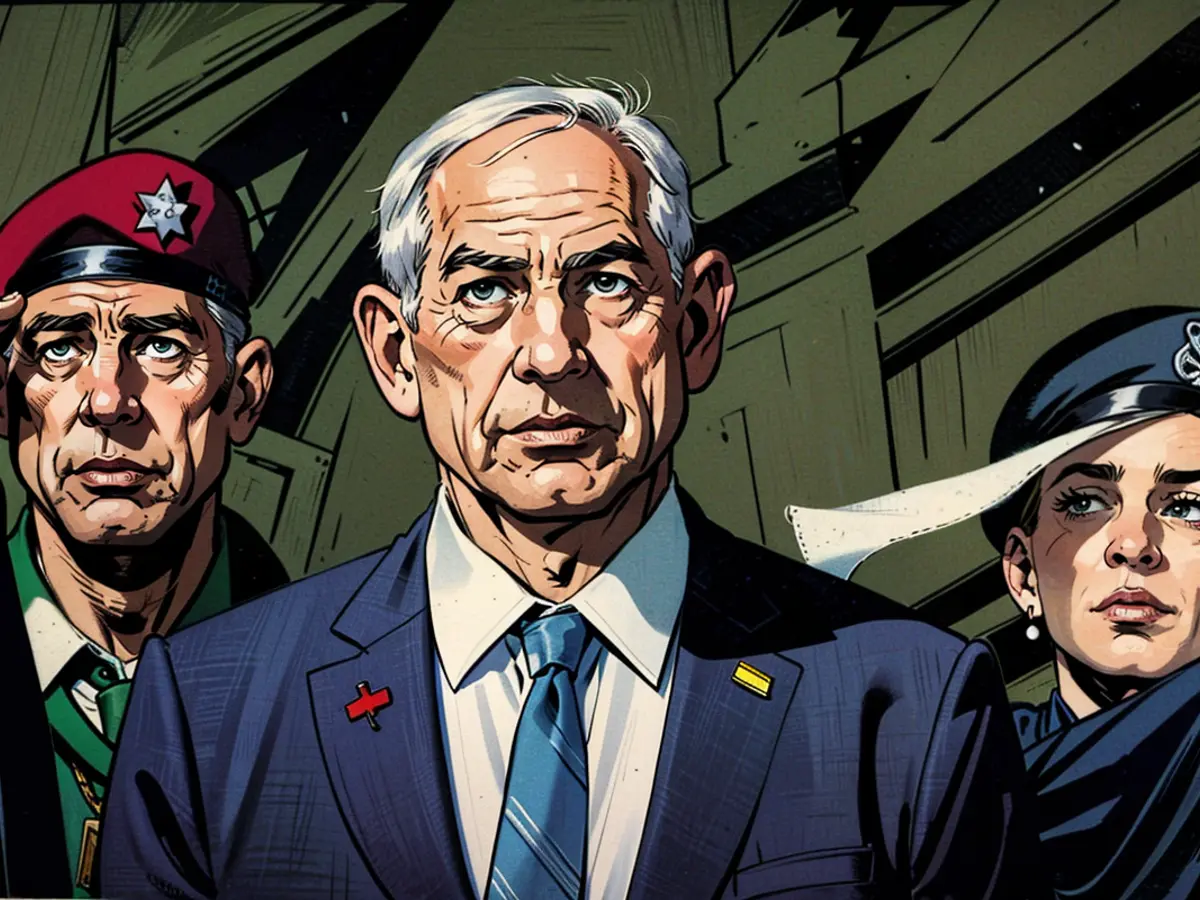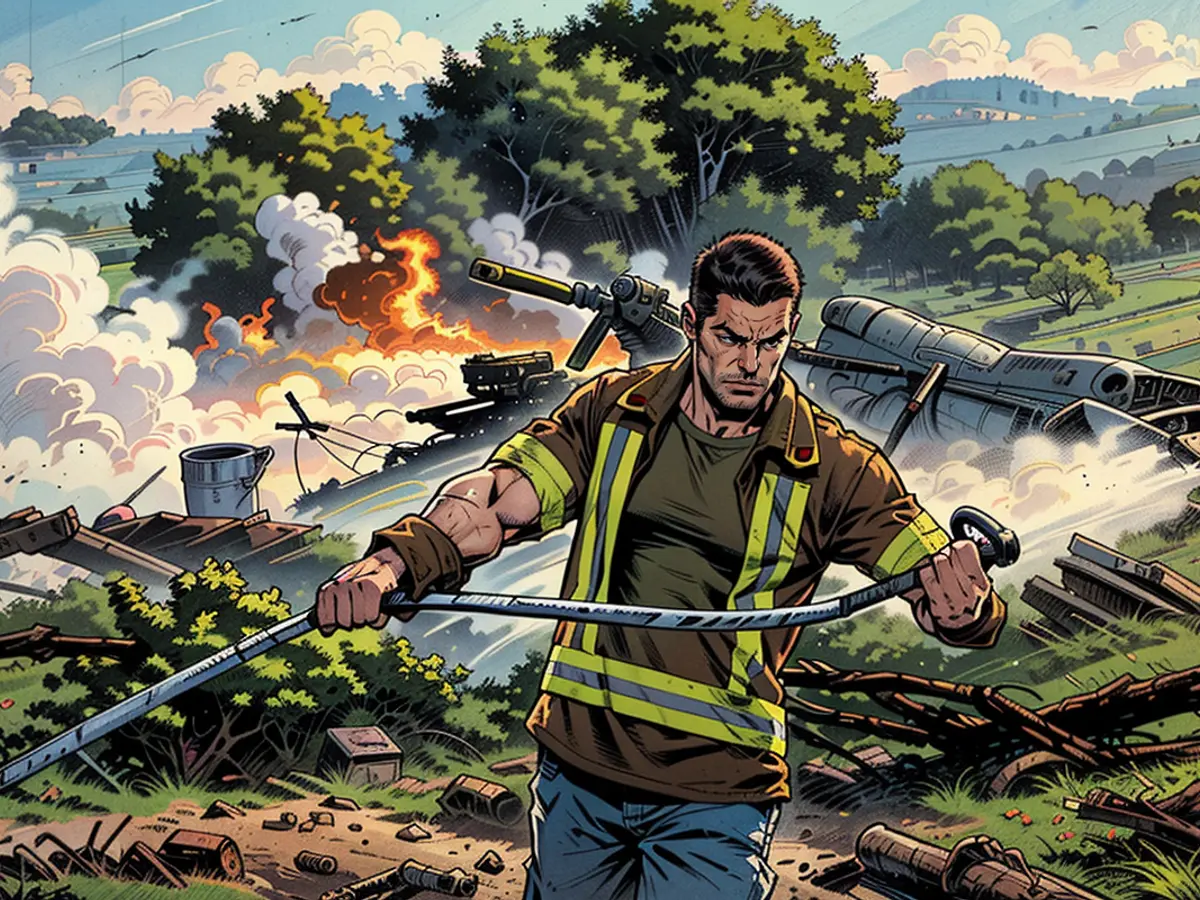Hezbollah-Israel tensions may soon escalate.
The ongoing back-and-forth between Israel and Hezbollah has persisted for nearly nine months, leading to a potential imminent war. Despite both parties preferring to avoid full-scale hostilities, experts foresee a more likely conflict ahead. Here's a rundown of the situation:
What's the dispute between Israel and Hezbollah?
Lebanon and Israel have been in a perpetual state of conflict for several decades. When Israel invaded Lebanon in 1982 following attacks from Palestinian militants, its forces reached Beirut before occupying southern Lebanon for 22 years. Hezbollah, an Iran-backed Lebanese organization with a formidable armed force, emerged after the initial invasion as a resistance group against Israel. Certain parts of the Western world classify Hezbollah as a terrorist group.
Relations between Israel and Hezbollah have been tense since then, although they've occasionally experienced lulls in fighting. However, things escalated in 2006 when Israel again invaded Lebanon after Hezbollah kidnapped two Israeli soldiers. The conflict resulted in the death of over 1,000 Lebanese, mostly civilians, as well as 49 Israeli civilians and 121 soldiers. In 2008, Hezbollah returned the remains of the kidnapped soldiers in exchange for Lebanese and Palestinian prisoners and the bodies of militants being held by Israel.
The latest round of hostilities between Israel and Hezbollah was initiated by Hamas, a Palestinian militant group that staged an attack on Israel on October 7, resulting in the deaths of over 1,200 people and the abduction of 250, according to Israeli authorities. Israel later went to war with Hamas in Gaza, during which significant parts of the region were destroyed and over 37,000 Palestinians were killed. Hezbollah claimed these attacks were done to support the Palestinians in Gaza.
Hezbollah's military strength has increased significantly since 2006, when they relied mainly on inaccurate Soviet-era Katyusha rockets. Now, Hezbollah's leader, Hassan Nasrallah, states that his group has a force of more than 100,000 fighters and reservists. It's also believed that Hezbollah possesses over 150,000 rockets capable of overwhelming Israel's defenses in the event of an all-out war.
Why are tensions intensifying now?
The Israel-Hezbollah conflict has slowly been escalating since October 7, according to Heiko Wimmen, project director for Iraq, Syria, and Lebanon at the International Crisis Group, a Brussels-based think tank. He described it as a "slow-motion escalation" that "creeps up."
Recently, skirmishes across the border have increased in frequency and severity. A reservist from Israel was killed in a Hezbollah attack on a northern Israeli village, making it the 19th fatality of Israeli soldiers.
Additionally, Israel killed one of Hezbollah's top commanders, Talib Sami Abdulla, in a strike on southern Lebanon. In response, Hezbollah unleashed over 200 rockets towards Israel on Wednesday and a smaller but significant barrage on Thursday.
The fighting has expanded beyond the immediate 4-kilometer (2.5-mile) area around the border, with Hezbollah firing up to 35 kilometers into Israel and Israel retaliating by targeting areas of Lebanon up to 120 kilometers north. Cross-border attacks in early June ignited large fires in Israel's northern regions, which Israel claimed were caused by rocket fire from southern Lebanon, where Hezbollah said it launched a "swarm of drones" at Israeli military sites.
Amal Saad, a lecturer at Cardiff University and an expert on Hezbollah, described this escalation as a significant departure from past flare-ups after October 8. "This stage goes beyond mere reprisals and restoring deterrence," Saad wrote on June 5. "It's about conveying new messages and strategies."
The situation has become too prominent and challenging to ignore, said Wimmen of the International Crisis Group. Israeli officials are under growing pressure to respond as far-right ministers in Prime Minister Benjamin Netanyahu's government call for military action.

Ronni Shaked, a researcher at the Truman Institute at the Hebrew University of Jerusalem, told CNN that there's a pressing need to take action in the north. "Nobody can live in this situation."
New weapons entering the fray
New and enhanced weaponry has been introduced during the cross-border hostilities. Notably, Hezbollah used Falaq 2 rockets for the first time during the conflict on June 8. These are an improved version of the Falaq 1 rockets that Hezbollah has previously employed, boasting extended range and a larger warhead than the Falaq 1 model. An Iranian-made rocket, the Falaq 2 represents an elevated threat to Israel.
In summary, the state of tension between Israel and Hezbollah has been growing for almost nine months, raising the likelihood of eventual, full-scale war. With each passing day, hostilities increase, translating into more casualties and more advanced weaponry being utilized. With pressure mounting from within, Israeli officials are expected to consider further action shortly.
A rocket manufactured in Iran, named Falaq 2, possesses a greater range and can carry a larger warhead when compared to its previous version.
Military personnel stationed along the Israeli-Lebanese border have employed a rare tool - a catapult - which dates back to the 16th century. This device involves a rotating arm with a connected sling that assists in launching projectiles. It was utilized by Israeli forces to launch fireballs towards Lebanon, presumably intended to burn greenery, making it simpler for them to recognize militants operating in the area. Israili's public broadcaster, Kan, on Thursday reported that the IDF asserted the apparatus was "a local initiative" and that it was "not widely used."
What are both sides declaring?
Emotions have been intense from both sides. However, professionals speculate neither side wishes to engage in an extensive war.
In December, Netanyahu warned that if Hezbollah instigated an all-out combat operation, Beirut would transform into another devastated region like Gaza.
Yet, Finance Minister Bezalel Smotrich last week effectively nixed the notion of a larger-scale war. Asserting that Israel's military had no intention of staging an offensive assault against Hezbollah and eliminating it. He added, "The military is informing us currently that it doesn't want to... initiate a war in the north, engage in combat, and overwhelm them and create a safety zone."
While visiting the Northern city of Kiryat Shmona close to the Lebanese border, Netanyahu stated Israel was prepared for "very intense action" in northern regions.
"Those who believe they can harm us and that we'll simply watch are making a major mistake," the prime minister shared. "One method or another, we'll re-establish peace in the north."

Naim Qassem, Hezbollah's deputy leader, indicated to Al Jazeera that Group's analyses concluded these Israeli threats were not seriously meant.
"Regardless, we've chosen not to widen the skirmish and don't desire a full-fledged war. Yet, when forced, we'll be prepared, and we won't retreat," Qassem divulged, followed by acknowledging that Hezbollah would cease its hostile acts against Israel when the Gaza conflict concluded.
Is it plausible that a full-scale war may occur?
Although both sides may not spark an all-out war deliberately, their more forceful measures may still accidently instigate one.
Per Nimrodi of the International Crisis Group, it's improbable that Israel and Hezbollah would actively decide to start a war. But the more dynamic the skirmish becomes, the deeper each side reaches into the other's territory and the more potent weaponry utilized, the more probable a blunder.
Understandably, Netanyahu confronts immense pressure from the opposition and members within his alliance to act in the north.
According to the IDF, over 53,000 Israelis have been displaced from their homes within the region. Moreover, houses in the Galilee area of northern Israel were evacuated this week due to a fire following rocket assaults from Lebanon, as per Israeli police.
In Lebanon, more than 94,000 people have been displaced from settlements and towns near the border with Israel, as per data released last week by the Lebanese Ministry of Public Health.
"All Hezbollah fortifications must be burned and obliterated. War!" proclaimed Israeli National Security Minister Itamar Ben Gvir in a public broadcast.
Conversely, Opposition leader Yair Lapid condemned the government, claiming. "The north catches fire while Israeli deterrent fails. The government lacks a strategy or a plan for after the Gaza conflict, lacks guidance, and is merely discarding this land."
The US has cautiously addressed the situation, fearing the confrontation might spiral out of control. The State Department's Matthew Miller stated on Wednesday that the Biden administration was "highly concerned" about the danger of escalation, suggesting that diplomatic interactions are underway "to prevent the conflict from escalating beyond control."
Shaked, a scholar at the Truman Institute, believes that regardless of Hezbollah's justifications for assaulting Israel, the group's strategy is likely closely aligned with its closest ally, Iran—particularly given the heightened stakes.

Hezbollah plays an essential role as Iran's most formidable non-government partner. Consequently, an expanded conflict would involve the Islamic Republic and the United States in the war. Israel and Iran skirted war in April during a series of unprecedented direct strikes on each other's soil.
Read also:
The ongoing tension between Israel and Hezbollah in the Middle East has the potential to escalate into a full-scale conflict, affecting the entire world.
The situation in the Middle East, particularly the tensions between Israel and Hezbollah, has drawn international concern due to the power and weapons capabilities of Hezbollah, backed by Iran.







